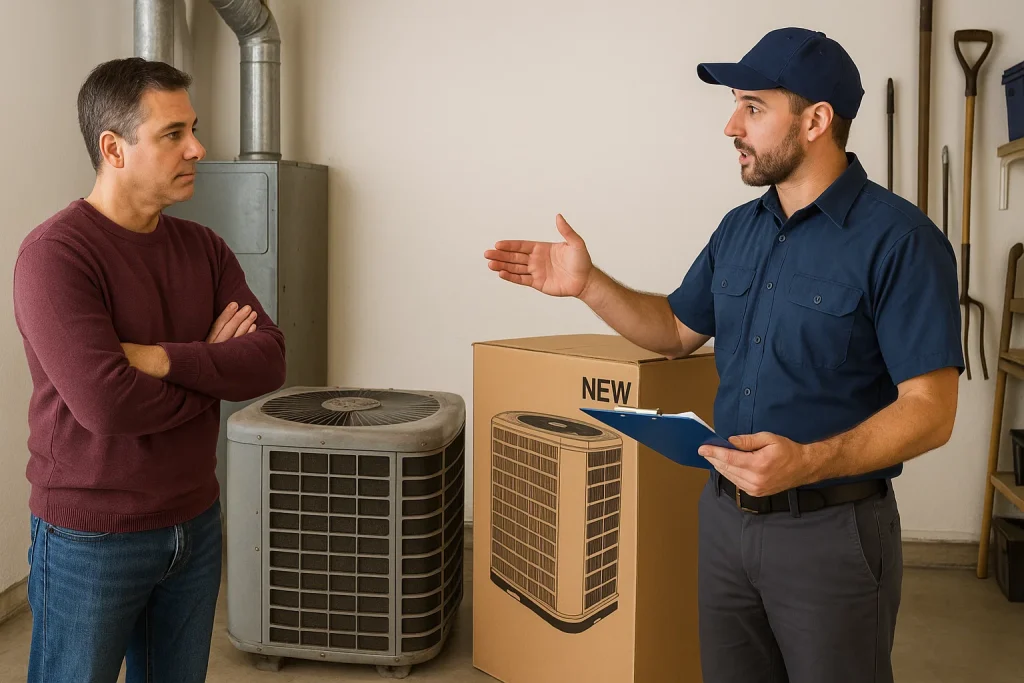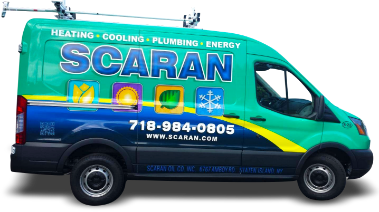Deciding whether to repair your existing air conditioner or replace it with a new system is a common dilemma for many homeowners. Your AC is essential for comfort, especially during hot months, but it’s also a significant investment. Understanding the key factors that influence this decision can help you choose the best path forward, balancing cost, efficiency, and reliability.

Signs You Should Consider Repairing Your AC
If your air conditioner is relatively new—typically less than eight years old—and the issue is minor or isolated, a repair may be the most cost-effective solution. Common repairable problems include:
- Refrigerant leaks
- Faulty thermostats
- Broken fans or motors
- Electrical issues
- Clogged or dirty coils and filters
If the repair cost is less than half the price of a new unit, and your system is otherwise running well, repairing can extend its lifespan without a large upfront expense. Prompt repairs also prevent small problems from escalating.
When Replacement Is the Smarter Choice
There are several situations when replacing your AC system makes more sense than repairing it:
- Age of your system: Most air conditioners last between 10 and 15 years. If your unit is approaching or past this age range and starts requiring frequent repairs, replacement is often the better option. Older systems are less efficient and more prone to breakdowns.
- High repair costs: If a single repair costs more than 50% of a new system’s price or you are facing multiple repairs in a short time, replacing the unit can save money over the long term.
- Poor efficiency: Older AC units typically have lower SEER2 (Seasonal Energy Efficiency Ratio) ratings, meaning they consume more electricity to cool your home. New models are far more energy efficient, which can significantly lower your utility bills.
- Inconsistent cooling or comfort issues: If your AC no longer cools your home evenly or struggles to maintain temperature, it may indicate failing components or poor system sizing. A new, properly sized system can improve comfort and reduce energy waste.
- Environmental considerations: Older units often use refrigerants that are being phased out due to environmental regulations. Upgrading to a newer model with eco-friendly refrigerants benefits the environment and ensures compliance with regulations.
Additional factors to consider:
- Home upgrades: If you’ve recently remodeled or added space, your old AC might not be sized correctly anymore, making replacement advisable.
- Technological improvements: Modern systems offer advanced features such as smart thermostats, zoning, and quieter operation that can enhance comfort and control.
- Incentives and rebates: Look for utility rebates or manufacturer incentives that can lower the upfront cost of a new system.
How to Decide: Quick Guidelines
Consider repair if:
- Your AC is less than 10 years old
- Repair costs are less than 50% of the price of a new system
- The problem is minor or isolated
Consider replacement if:
- Your system is over 10–15 years old
- Repair costs are high or you face frequent repairs
- Your energy bills are increasing due to inefficiency
- Cooling is inconsistent or inadequate
- You want to upgrade to modern, energy-efficient technology
Contact Scaran today to schedule an appointment with our professionals for your AC repair or replacement.












